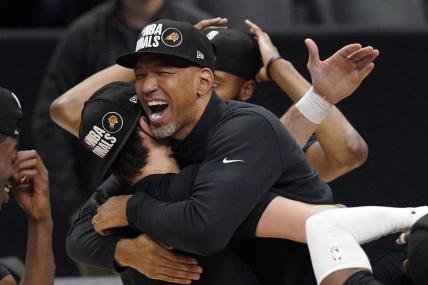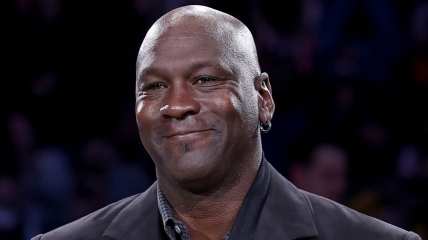NBA Social Justice Coalition’s James Cadogan talks league’s top activism priorities
EXCLUSIVE: "The NBA has a deep investment in ensuring as many people as possible have access to the voting franchise," the executive explains
I recently spoke with James Cadogan, the new executive director of the National Basketball Social Justice Coalition. I wanted to know what initiatives the NBA would prioritize under Cadogan’s leadership and was curious as to how the league intended to build on some of the social justice work so many of us have observed with players speaking out against police brutality, inequality, and larger racial injustices.
Cadogan is helping lead the charge in a league where 75% of the players are Black and represent 29 major cities across the country. I was excited to sit down with Cadogan to hear his vision as to how he intends to build a 21st-century justice initiative that began in the league with greats like Bill Russell, Oscar Robinson, Kareem Abdul-Jabbar, and so many players who stood up and advocated for what they believed was right.
Cadogan is coming to this job with an extensive resume: Vice President of Criminal Justice at Arnold Ventures; the inaugural Director of the Thurgood Marshall Institute at the NAACP-Legal Defense Fund; Counselor to Attorney General Loretta Lynch in the Department of Justice; and Senior Counselor and Director of Policy and Planning in the DOJ’s Civil Rights Division, to name just a few.
Policing reform, voting rights, criminal justice are the Coalition’s top three priorities that Cadogan will tackle in this new job. Below is an excerpt of our conversation.
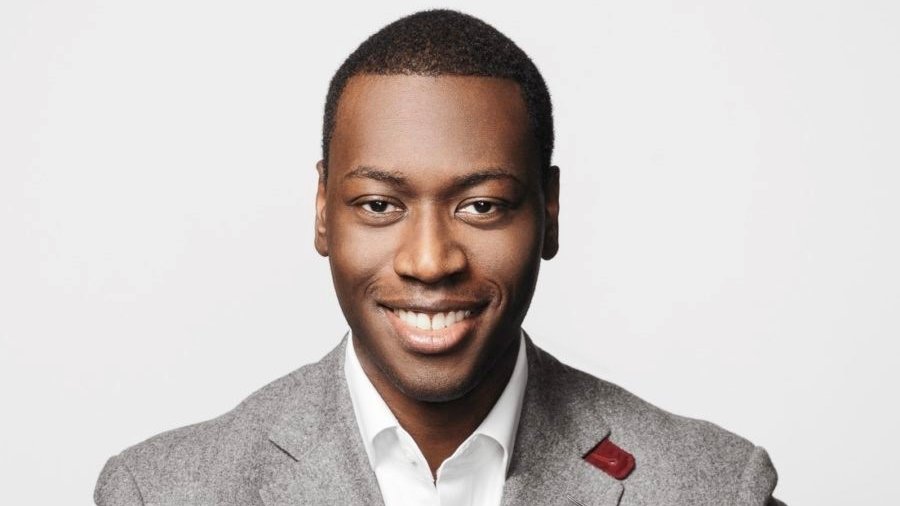
CG: First things first, the three priorities are quite extensive. Has there been any movement on them thus far?
JC: As far as voting rights are concerned, during the 2020 election, 23 NBA facilities and arenas were made available for registration and for polling. The NBA has a deep investment in ensuring as many people as possible have access to the voting franchise. Second, we wanted to make sure we supported the George Floyd Justice in Policing Act publicly; that sets the pace for us stepping into our ability to be advocates who reflect NBA values on policing — which is complex, but critical.
Third, we want to start from a recognition that criminal justice and mass incarceration have been a problem for 30+ years. There are a number of different policy approaches we can employ to advance justice. For example, jails policy and sentencing reform are all interconnected with policing as well. Most important to me as we start to explore the Coalition’s work in this space, I want to make clear how each of these issues relate and be thoughtful about the Coalition’s biggest impact as we set new advocacy priorities.
CG: Who are you working closely with and what most excites you about this work?
JC: I am the executive director of a coalition comprised of a board of 15 people who represent the NBA ecosystem. That is, five players, five team governors/owners, two coaches, the NBPA Executive Director, the NBA Commissioner, and the Deputy Commissioner. The coalition is a reflection of the entire NBA family where these voices are in one body, speaking with one voice on policy issues. That is the goal of this board.
What most excites me in the first instance is the work we are doing with the players. The history of NBA activism and social justice activism dates back 60+ years in the league. So many players are standing up and advocating for what they believe is right on local, state, and national levels.
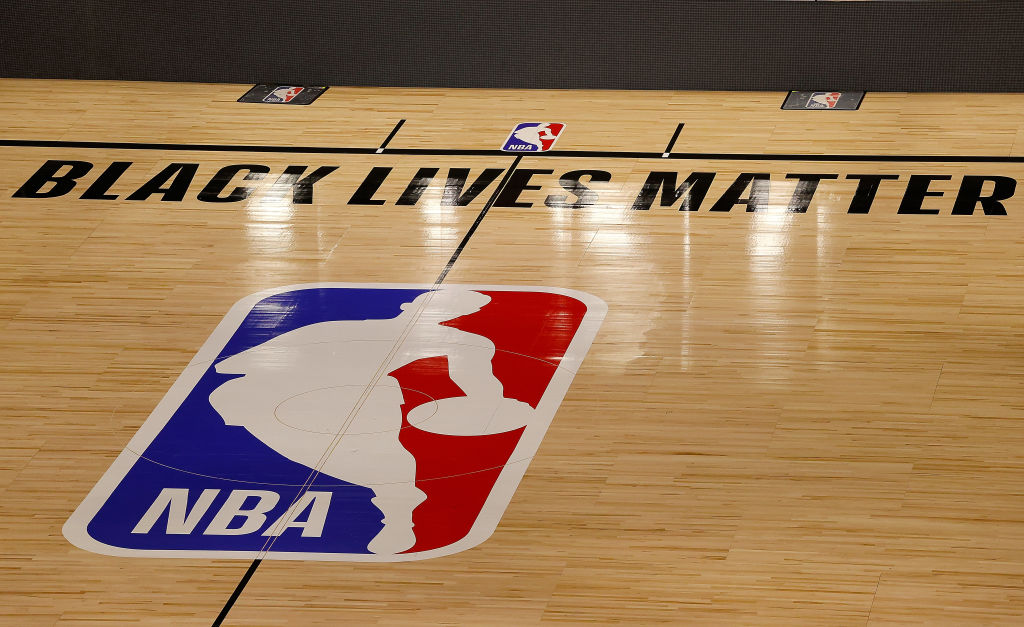
There has been a reawakening on racial justice in America and the NBA is playing its part: having the entire NBA family (players, governors, coaches, union leadership) be responsive in this moment and institutionalize this part of policy advocacy and enter into the political sphere is new. But it’s a natural extension of what so many players have done for decades.
CG: What is the role of players, coaches, owners, and even cities in making your vision a reality?
JC: We have our board and we will target issues and speak with one voice and promote policy issues that make sense for our three priorities: policing reform, voting rights, criminal justice. Advocacy is not new for the NBA. The new Kareem Abdul-Jabbar Social Justice Champion award is another way we have continued to recognize, lift up, and celebrate the difficult issues players have addressed. And historically, many of the teams have engaged in their own social justice initiatives.
NBA Cares has existed for nearly 16 years, which is the community outreach and engagement arm of the organization. Cares has succeeded locally and globally in connecting resources and programming to millions in communities. We can’t pick and choose piecemeal on social justice. It’s political work. It’s economic work. It’s community engagement work.
Last year, the league created the NBA Foundation to directly invest in Black and brown youth to support career development and economic growth. There is a political side, a policy side, and an advocacy side and we are not leaving anything on the table because we want to make this a long-lasting success.
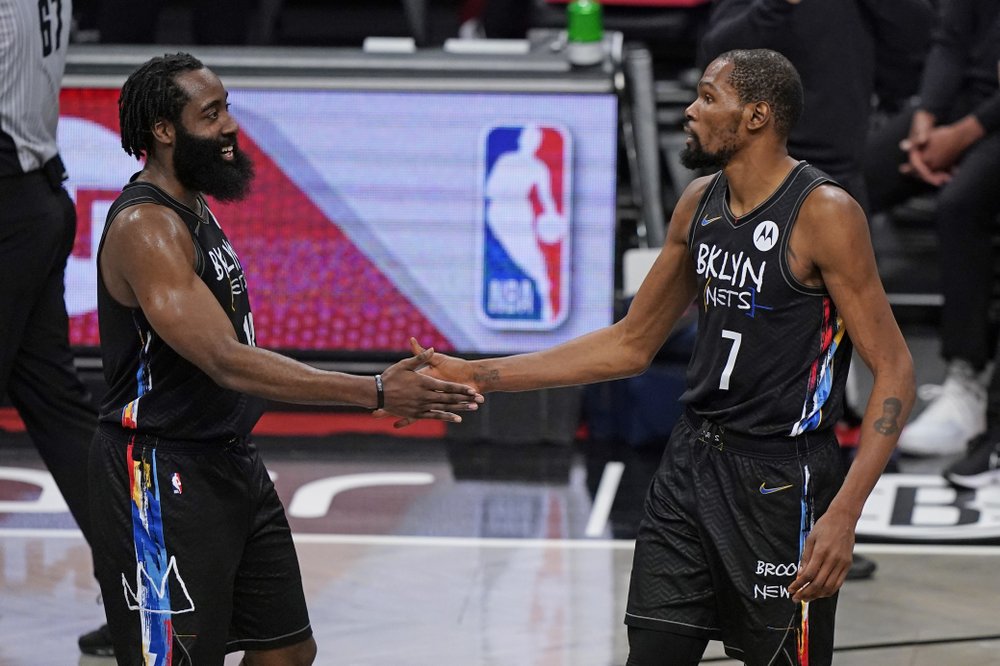
Just about every team has their own corporate social responsibility operation or individual team foundation that gives grants, and many teams even have their own justice agendas [specific to their geographic locale].
CG: This feels like a dream job. Doing great social justice work, while assisting a league with a long history of players who have become global figures not just for their athletics, but for their philosophies on excellence, equality, and so much more. Who was your favorite player growing up?
JC: Growing up I was a die-hard 1990s Bulls fan. My forever and for always will be Michael Jordan. I grew up in England until I was 14 and then my family and I moved to Maryland. My introduction to the league was as a global game and being a young Black boy in England and seeing the icons of American basketball; Black men being celebrated for their capacities and talents was an inspiration that’s hard to describe.
Not only was Jordan my favorite player, I wore out VHS tapes of his from the 1980s and ’90s. In one in particular, Air Time [now an NBA “Hardwood Classic”], he talked extensively about life lessons on winning and losing and what it meant to be relentless in the pursuit of excellence. When you see that when you’re 9 or 10 years old, and when you hear those kinds of axioms from your idol, it stays with you. I memorized those VHS tapes and those lessons still impact my life to this day.
Have you subscribed to theGrio’s new podcast “Dear Culture”? Download our newest episodes now!
TheGrio is now on Apple TV, Amazon Fire, and Roku. Download theGrio today!
